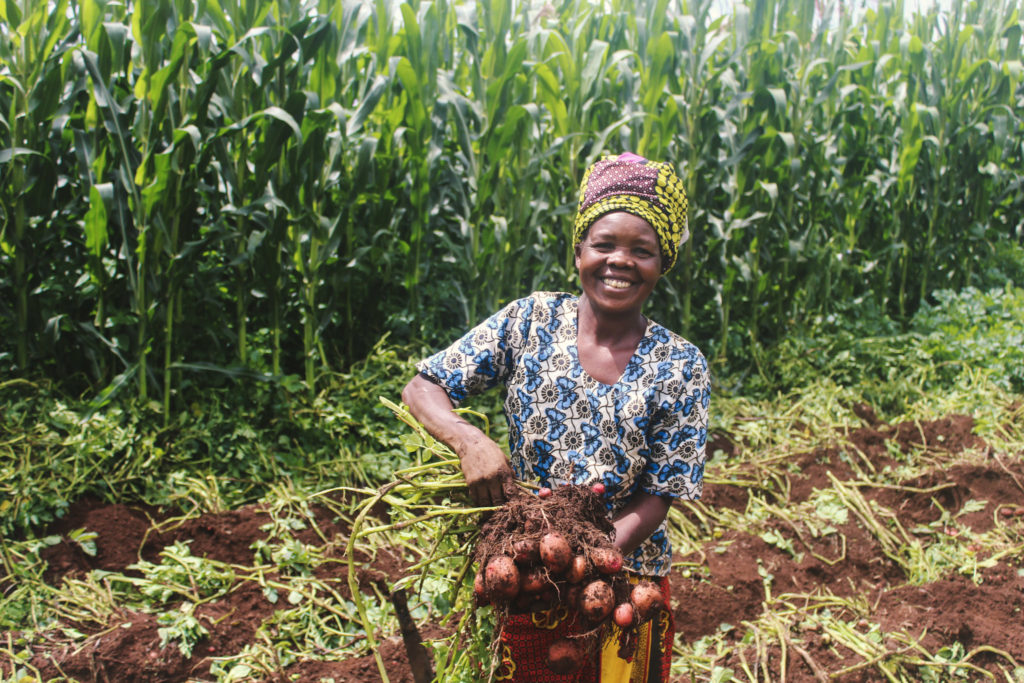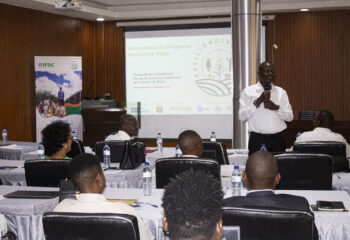
A team of researchers from Mohammed VI Polytechnic University in Morocco with IFDC’s Resilient Efficient Agribusiness Chains in Uganda (REACH-Uganda) and Promotion of Nutrition-Sensitive Potato Value Chains (PNSP) projects completed field fertilizer trials in Uganda in August. The trials explored how application of various fertilizer blends would counter the yield-limiting effects of deteriorating soil fertility.
Farmer groups trained under PNSP farmer field business schools (FFBSs) offered potato fields as sites for the study. In March, the agricultural expert, agronomist, PNSP extension staff, and lead researcher verified 12 suitable sites in Mbale, Kapchorwa, and Kween districts. Soil samples were collected from the sites and analyzed to determine inherent soil fertility and health. At the onset of the rainy season in April, planting and fertilizer application were completed concurrently. Seven fertilizer blends were applied; these included macronutrients, i.e., nitrogen, phosphorus, and potassium (NPK), at a constant rate of N but varying levels of P and K, and micronutrients, such as boron and zinc.
Farmer groups managed the potato field trials with bi-weekly supervisory visits from the research team to ensure the recommended agronomic practices were observed in the potato field trials. Data collection on growth parameters was followed by topdressing. The crop was monitored and sprayed to control pests and diseases, greatly improving the output. Harvesting and yield data collection were completed in August, 120 days after planting.
Results at selected sites showed a tuber yield of 25.8 mt/ha, compared with 12.3 mt/ha for the control (no fertilizer application). The field trials sparked the interest of many farmers, who would like to gain access to these fertilizers.
An economic analysis is still underway to determine profitable and affordable fertilizer blends for recommendation to smallholder potato farmers in the Mount Elgon region of Uganda.



